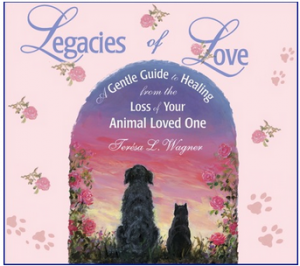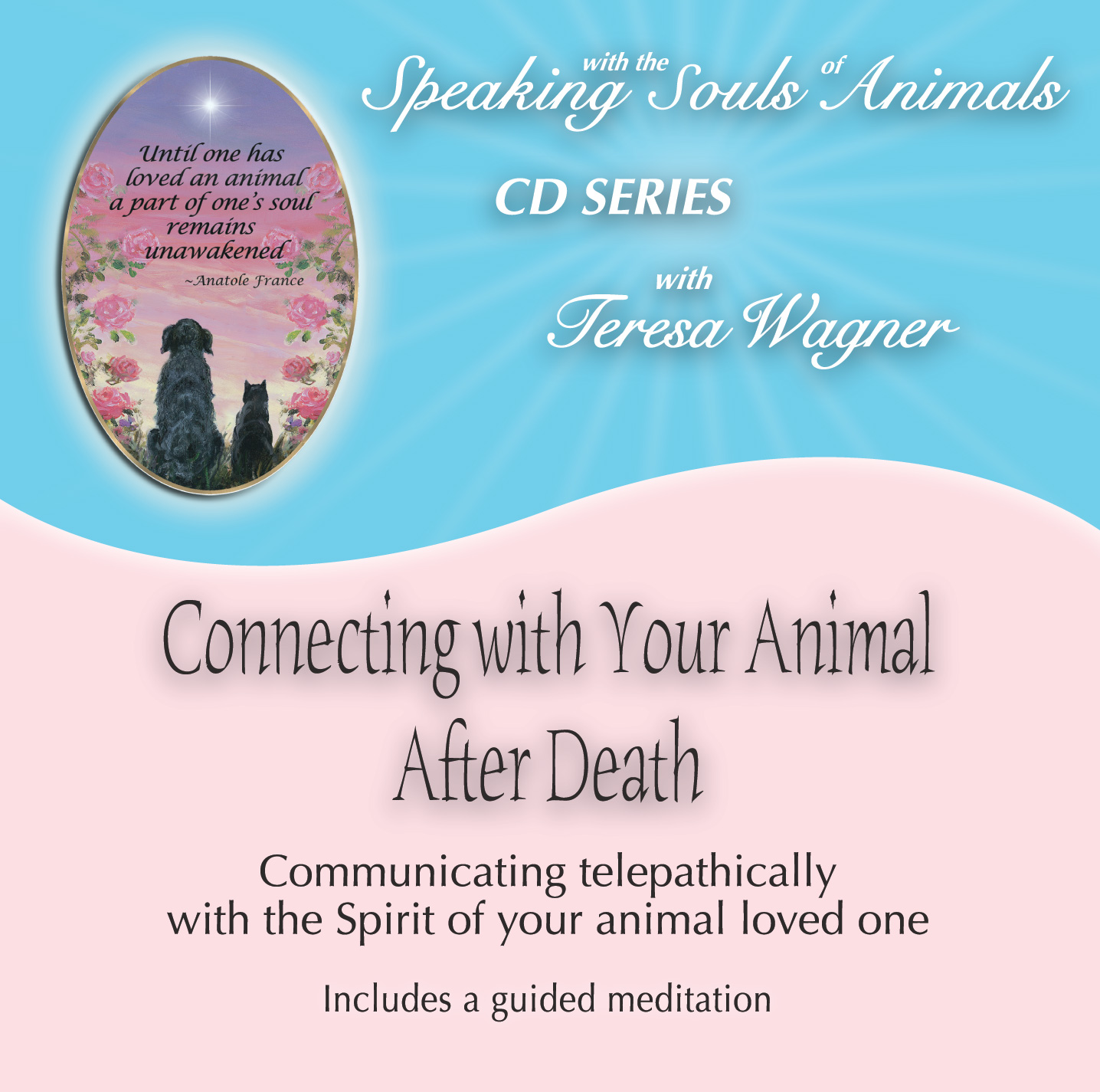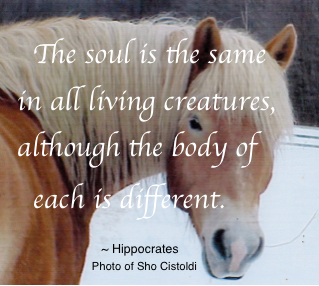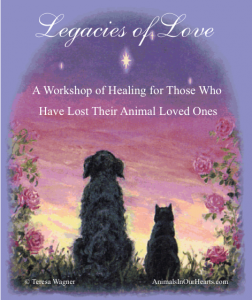There exists a longstanding prejudice in most cultures that we should not love animals as much or more
than we love people.
And, that if we have extraordinarily close relationships with animals
something is wrong with our ability to relate healthily to humans.
This irrational prejudice impacts the quality and quantity of support we receive when mourning animal loved ones.
When we lose the animals we love so deeply there are four issues which make grieving their loss different from losing the humans we love. These issues exacerbate what is an already painful experience and can present additional challenges to our healing. In examining and deepening our understanding of these issues, we—as grievers and supporters of grievers—can move together toward breaking down the cultural and personal barriers which detract from the necessary, sacred process of healing from loss.
1. Animals love us unconditionally
2. The death of animals is trivialized by many people and cultures
3. We should not love animals as much or more than we love people
4. We are often faced with the decision to consider euthanasia
1. Animals love us unconditionally.
The first difference is that animals love us unconditionally. This certainly is a frequently and emphatically noted distinction between animal and human love. There seems to be a high level of consensus about this with people who love animals—even amongst those in diverse roles and with widely varying values and animal care practices. There’s something about loving animals that’s different. They love us in ways most people don’t yet know how to do. Their profound love knows no judgments, no bounds and provides us with a place to not only experience unconditional love but to truly learn about unconditional love. As much as we as people may be striving to love ourselves and others unconditionally, most animals have already mastered this ability. Our relationships with them carry a quality of love often not available in human-to-human relationships. Animals not only love us unconditionally, they seem to do it effortlessly.
For many people who love animals, it is from them that we’ve learned about receiving love and giving love. And all this learning is often applied to our relationships with both animals and people. Learning about love is transferable to any relationship or context. For many humans, animals are the best teachers of love on the planet. As we move along our earthly lives learning and growing in human relationships, in work and other roles and endeavors–sometimes gliding, sometimes bumping along losing our way, and sometimes experiencing trauma–our love with animals provides a natural, healthy and rewarding source of intimacy, support and growth during our journeys.
Many spiritual teachers have described love as an energy that is not really an emotion, not just the strong sentiments of our hearts, but rather a powerful state of consciousness. I agree. It is not that the emotional, sentimental love of the heart is not valuable or deeply meaningful, or that it does not have a profound effect on us. But when love is experienced at the soul level it becomes a state of consciousness. This love is the most powerful energy we will ever experience, and it is the most powerful force in the universe. Unconditional love involves complete acceptance and the desire to understand the ones we love, not just accepting their love because it makes us feel good. This is how animals love us. They don’t love us for our money, our success,
our relative positions of power amongst others, the size of our house or the beauty of our face or body. They love us whatever our appearance, our income, our spiritual beliefs, our values or our mood. If we gain 30 pounds or work long hours away from home they love us anyway. Most appreciably different from human love, they continue to love us even when we don’t meet their needs. Sadly, this difference sometimes results in cases of benign neglect and abuse, maintaining the important need for continuing education about responsible pet ownership and the professional services of animal welfare organizations. The fact remains that whatever our behavior, love from animals is so very often unconditional and fiercely loyal.
Most of us—humans and animals—need experiences of unconditional love from others to learn to feel safe and secure in life, to learn to know that we matter, that we are of value, to know we have a place in the world, and to learn how to love ourselves. Ideally, human parents provide this foundation for their children. Unfortunately, many humans have not experienced this ideal from their parents, or from any human. It’s from animals that so many of us learn to feel deserving of receiving unconditional love. It is from animals that so many of us learn how to love ourselves and learn how to love others. In their ability to profoundly love without condition, animals give us these priceless gifts. It is no wonder we grieve deeply from the separation at physical death.
Healing Thoughts for Reflection:
It is all right to acknowledge that your animal gave you something humans may not have given you. This does not diminish your relationships with humans. It honors the unique gifts your animal gave you and this acknowledgement is an important part of healing your grief.
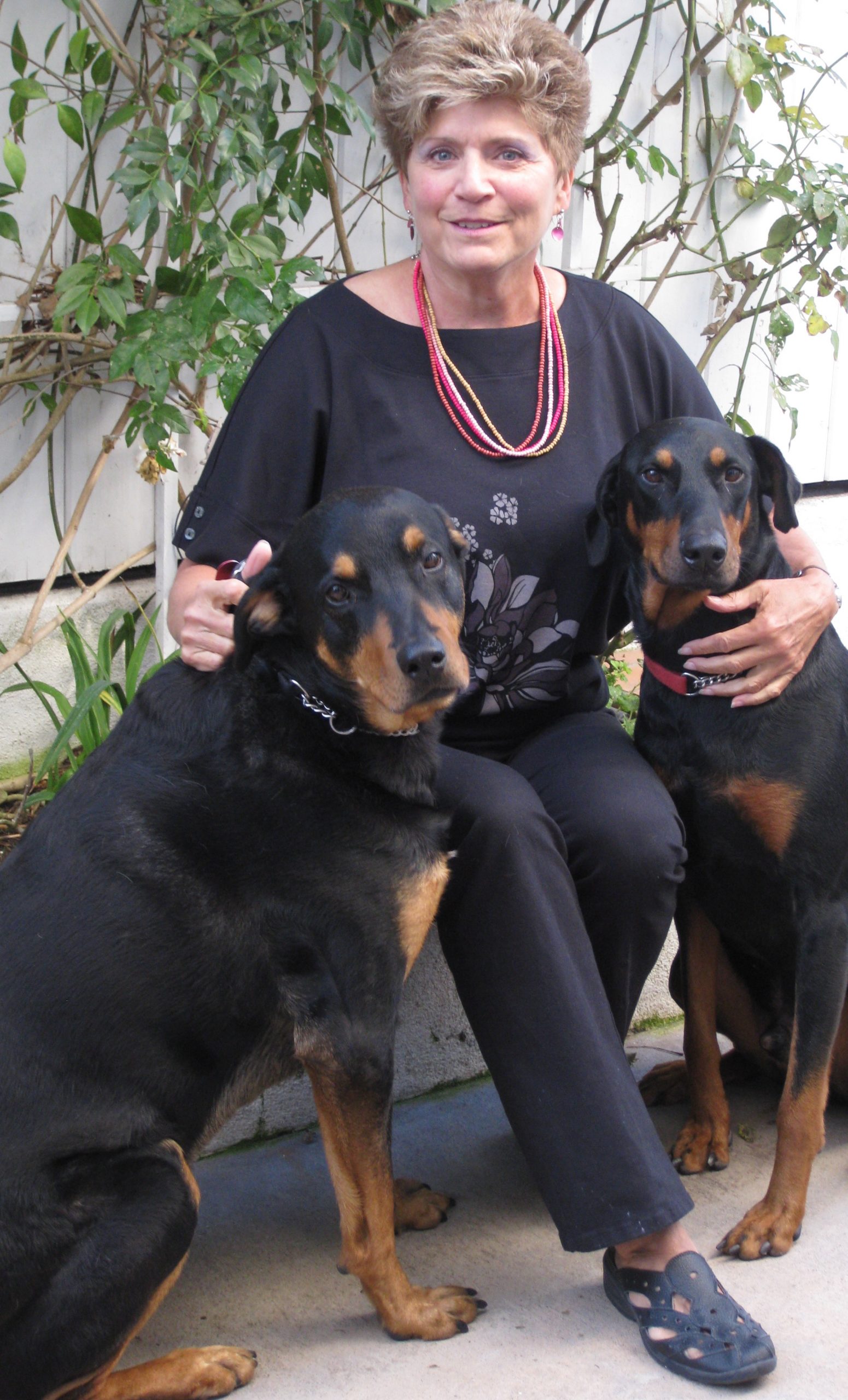
2. The death of animals is trivialized by many people and cultures
The second difference is that the death of animals, including the loss of beloved animal companions, is trivialized by many people and cultures. People who love animals as family members experience not only the natural pain of grief when their animals die, but are also quite often faced with ignorant and sometimes cruel reactions of others who treat their loss as
insignificant. The most common complaint about reactions from others I have heard for many years from clients is being told some variation of: “It was just a cat, you can get another one.” What’s potentially just as harmful are comments found in the very literature written to help us understand and ease our grief, literature we can be easily influenced by when vulnerable and wounded from loss.
I read a book some time ago that focused on how to console grievers to see if it might be an appropriate addition to my recommended reading list for my Grief Support Skills workshops. When I read the chapter on pet loss, I was aghast when I read the author’s list of the type of people who bond with animals and are likely to grieve them: young children; the elderly; single people; prison inmates and other institutionalized people involved in animal therapy programs.
The clear message was that these are the only categories of people who will likely be close enough to animals to grieve them. Moreover, the message was clear that if a person is very young, very old, unmarried, in prison or institutionalized there is a rationale for strong bonds with animals and subsequent grieving because something is lacking in her or his life. The purpose of the book was described as helping the reader learn how to support others in grief. Sadly, however, in the pet loss chapter the authors committed a grave disservice to the grief healing field and grievers by stating as fact their personal assumption that grieving a companion animal’s death is experienced only by young children, old people, single people, criminals or adults with serious dysfunction. This, of course, also implied that people in other categories should not expect to grieve deeply, and that if they do perhaps something is not quite normal. These condescending stereotypes are not based in fact, but are steeped in the prejudice and ignorance of those who have not experienced significant love with animals. Such condescending stereotypes are harmful to those who grieve, not helpful.
These condescending stereotypes are not based in fact, but are steeped in the prejudice and ignorance of those who have not experienced significant love with animals. Such condescending stereotypes are harmful to those who grieve, not helpful.
Sometimes religious teachings about animals, however well intended, can also undermine the healing of a person grieving the loss of a beloved animal. In an article in a religious magazine a member of the clergy advises readers to offer comfort to those grieving animal companions with an open heart, yet also cautions them to be sure to retain the important distinction between a service for a human and a ritual for an animal. This kind of double message is reflected in complaints I’ve heard over and over again from clients. Many of us have been taught by our religions to believe that, yes, animals are God’s creatures. Yes, as loving religious people we should be kind to animals and comfort those whose animals die. But many of us have also been taught by our religions that we shouldn’t forget for one minute that animals are less than us, that we shouldn’t go too far with our grief or take it too seriously, lest it appear we love animals as much as people. God forbid. For those who do love animals as much as people and wish to remain faithful to their religion, this kind of advice can evoke a crisis of faith, confusion, anger, guilt, and even shame that one might “love another species too much” against the teachings of God. What kind of God would ask us to withhold our love for anyone, or to create a hierarchy of who is worthy enough to love and worthy enough to mourn? Certainly not the same God who created animals. Certainly not the same God that St. Francis–perhaps history’s most renowned animal advocate who openly treated animals as equal to humans–worshipped with adoration all the days of his life.
Sitting in a doctor’s office waiting area a few years ago, I picked up a magazine on parenting. When I opened it I was delighted to see that the editor wrote an article on pet loss. It included several moving stories of the death of family pets, describing touching ways in which different families handled burials and funerals to include the children. But the last line altogether ruined the message, discounting everything else in the article. It read: “The death of a pet is rehearsal for the real thing–when a person dies, such as the children’s grandparents.” Rehearsal? I couldn’t help but wonder, did this person really think that when children are crying their eyes out when the family dog dies that it’s merely a rehearsal? That the feelings of grieving children aren’t real, or don’t really count when an animal dies, only when a person dies? People with this attitude pat children on the head or adults on the arm and say things like, “I’m sorry for your loss, but be thankful it was just an animal.” The message they send is: “Your love wasn’t real. Your grief doesn’t count. So get over it already.”
The very real and deep grief felt by many who’ve lost their animals is often still treated by many cultures as insignificant or even dysfunctional. Though great strides have been made in the acknowledgement of pet loss since I first began this work in the mid l980s, much progress is still needed. Animal loss is still a disenfranchised loss–one in which the relationship and the loss are not socially validated, are not seen as legitimate, and are therefore not publicly mourned and supported. Until our cultures, our family members, friends, the media, mental health professionals, authors of books on grief and the clergy treat the loss of a beloved animal as respectfully as human loss–and a loss equally devastating as any other loss for some people—people who deeply grieve the loss of animals will remain unsupported from the very sources of support to which they turn.
Many who’ve lost an animal describe the insensitive treatment from those around them as just as painful,
and sometimes more painful, than their grief from the actual loss.
This disenfranchisement creates a secondary injury of insult,
making animal loss not only different from other losses, but in some circumstances even worse.
Healing Thoughts for Reflection:
When we are grieving we are emotionally wounded, more vulnerable, and more easily influenced and sensitive to others’ comments and behavior. In an ideal world, at our times of
grief we would be surrounded by others who deeply care, understand, and accept the depth of our loss and pain. But for many, the support around us is not ideal, and on top of our grief we have to deal with the less than helpful and sometimes hurtful actions of others. Yet, despite the fact that others may have not yet learned it, anyone who loves animals deeply knows that grief is indifferent to the species lost. Know this in your heart to be true, and don’t let the differing beliefs of others sully the real love you have for your animal, or diminish your experience of loss. Your grief is legitimate and real, regardless of any other’s comments, behavior, or opinion. Seek the support of people who understand your experience and accept your feelings. Sometimes this may be close friends or family, sometimes it may mean reaching out to acquaintances who you know love animals as you do, and sometimes it may be people you don’t know at all except for your shared experience of loss. It may mean finding a support group in person or online, seeing a counselor (whose values about animals are aligned with yours), reading a book on pet loss, or taking a class on healing from animal loss. Whatever support sources you chose, know that without a doubt your loss is real, your feelings are real, and you deserve a time of grief and healing.
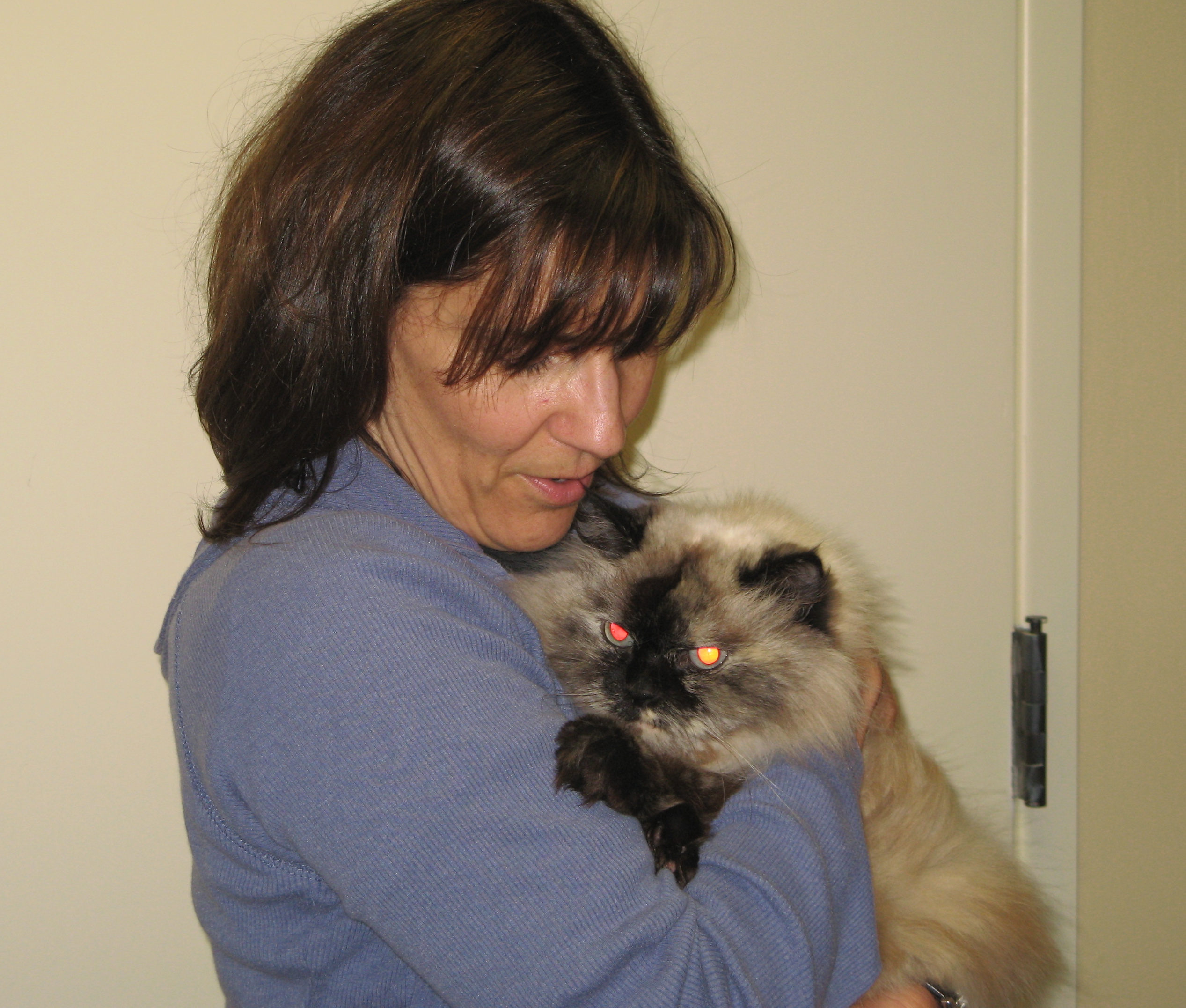
3. We should not love animals as much or more than we love people
The third way animal loss is different is that most cultures carry a prejudice that we should not love animals as much or more than we love people. . . and if we have very close relationships with animals there is something is wrong with our ability to relate healthily with humans. Perhaps this is due in part to the prevailing cultural theories that animals exist in a hierarchy of importance and value, with each species having relative rather than equal worth, with the human species at the apex. Clearly, some people are uncomfortable with and criticize the idea of relating to and loving animals on a par equal with humans. It’s inconceivable to some people, including some helping professionals, that such relationships are healthy and normal. This is similar to prejudices
regarding same sex and interracial relationships. Why the prejudice about species, sexual preference, or race? Perhaps because for some people what they don’t directly experience or understand they fear, judge or need to make wrong so they can feel comfortable and unchallenged living within their traditional (and often unexamined) world views. For some, a world ruled by hierarchy and separation by classification, especially if they’re in the governing, more powerful or privileged group, is more comfortable than exploring the possibilities of interconnectedness and love beyond artificial boundaries. Although the prejudice that we should not love animals as much as humans is beginning to slowly crumble, it’s still exists. And where it does it destroys opportunities for understanding and acceptance that people grieving the loss of an animal deserve and need to heal.
In June, 2014, Pope Francis warned couples that if they had pets but no children they would experience “bitterness and loneliness in old age.” He strongly criticized couples who chose to have no children but to have pets. Later the same year, he made a statement insinuating that pets may go to heaven, creating an enormous furor of excitement among animal lovers and advocates. For months after these statements appeared in the media, I heard from clients who are devout Catholics who were concerned about these two seemingly contradictory statements. They were thrilled about the “pets might go to heaven” statements, but several reported feeling guilty, confused or angry about being told to procreate instead of having pets. None of them could imagine ever being lonely or bitter living with their pets in old age. However, the Pope’s first message did create a lot of cognitive dissonance: “I love the Church, but have no children and love my animals as if they are my children. Does this mean I am not a good Catholic? Must I choose between my pets and my church?”
For people who are devout in any faith, such edicts from the heads of their church can create a very stressful dilemma. It can require a lot of energy for any of us in such a position to think through our options and choose what feels right for us:
• To renounce our love for our animals and stay in the church
• To renounce our faith in the church doctrine, leave the church and continue loving our animals
• To continue loving our animals as we do, continue our devotion to the church, but with the caveat that we disagree with the church’s view on animals.
One client I worked with was very shaken by the Pope’s strenuous statement about having children. She is a devout Catholic, married with no children, and with several pets who are very loved by her and her husband. After expressing and talking through a great deal of anger, confusion and guilt about this issue in our sessions, and after a great deal of prayer on her part, she came to this conclusion: “If I could still be a proud American even when I couldn’t stand President Bush, then I can be a devout Catholic and disagree with our current Pope on this one issue. I am not leaving my church over this. And besides, if he would just get a dog I know he’ll change his mind!” Though initially quite upset, thankfully this woman was emotionally strong and was able to choose a way that brought her peace with this issue.
In the early 1990s I found a book on pet loss written by a psychologist. I was thrilled to see a book on grieving animals published by a credentialed mental health professional. I was soon deeply disappointed, however, and alarmed for grieving readers when I read the author’s philosophy that we squander our life energy when we love animals as surrogate children rather than relate to them more appropriately as pets. The author describes a client as being too dependent on her pet because she did not have a husband and she sometimes took her dog along on dates. When her pet died, the author describes the woman as an emotional basket case, a state he says she created herself by loving her dog too much, which amounted to tinkering with reality.
Perhaps the point that was trying to be made is that too much dependency on another is not healthy and exacerbates our grieving process when the one we’ve been dependent on dies. That’s certainly true. The point missed, however, is that too much dependency is a possibility in all relationships, not just human/animal relationships. This client’s dependency could just as easily been on her father, her sister, her best friend, her therapist, her career—or if she did get married— on her husband. Furthermore, in regard to her loving her dog instead of finding a mate, well, not all humans want a mate. Some humans choose not to have a mate at a particular time in their lives, and not all humans who do want a mate can find a suitable one despite wanting one. Moreover, many humans who have mates love their spouses and animals equally. The message in the above mentioned book is that it’s fine to love animals, but, by God, not as much as humans; and, if you do, your grief is your own fault. How can such a message poossibly help anyone? It doesn’t. It only makes them feel worse–either guilty or inadequate for “loving animals too much,” or angry that they have to read something so absurd and patently untrue about animals and grief from a psychologist.
If the judgmental message that “inappropriate dependency on those you love is the cause of your deep grief’ were echoed in bereavement support groups for human loss, millions of widows and widowers would be chastised for having depended on their spouses for love, affection, family, emotional security, role identity, financial security, and more. But we don’t hear that as a criticism for human who grieve the loss of humans because it’s culturally acceptable to have some degree of dependence on beings of the same species for love, affection, a sense of family and belonging, security, etc. Yet according to this psychologist, when we have some of these same universal needs met in our relationships with animals–a different species–we are tinkering with reality.
This is a wildly unreasonable prejudice and a harmful one to those who absorb it as fact. We have a long way to go in understanding and accepting that many people have deeply spiritual and healthy relationships with animals. Our relationships with animals can be as psychologically healthy, spiritually fulfilling, and personally healing and rewarding as our relationships with humans. Sometimes they are even more so.
There are many, many people on earth who report that their deepest experiences of trust, love, and emotional intimacy have been with animals. Such experiences have been described to me over and over in thousands of stories from my clients in private consultations and workshops. Is this wrong to sometimes gain these healthy life experiences more so or as much from animals than from humans? Is it wrong to allow animals to help us heal wounds from trauma and abuse from humans? Of course not, especially when one considers the scope of human-to-human abuse which occurs around the world (the statistics of sexual abuse in the U.S. alone are staggering).
When we’ve been emotionally traumatized, physically abused or sexually violated by someone representative of a particular group (i.e., different species) it can be a natural and sometimes even necessary part of our healing process to need a time of withdrawal from relating to that group. We avoid what hurt us in the past and seek safety. Does seeking distance from “another group” make us inappropriately dependent on those with whom we feel safe? Possibly, but only if we are not consciously working through the issues and events which caused or contributed to our trauma and the emotional healing needed as a result. But the big question is: Is it unhealthy to turn to animals to help us heal, to find solace with them, to learn to feel safe again? No. No more than it is unhealthy for humans to turn to other humans to help one another, to allow their complimentary strengths to help each other heal and grow through their journeys in life. For those who have been abused or traumatized by humans, allowing themselves to experience loving closeness and safety with animals is a choice for growth, not an indication that something is wrong. They’ve gravitated to trustable beings and in doing so are able to transcend species differences to learn to love and trust again. This is something to celebrate, not condemn. Sometimes it takes loving and being loved by another species to learn to love and trust your own kind. This is not wrong. It’s a blessing.
Loving animals deeply does not cripple us from loving humans deeply. On the contrary, loving is loving,
and the competencies we develop from loving animals well and responsibly help us love humans well also.
We don’t love better because the object of our love is the same species as us.
Dependency occurs when we rely too heavily or exclusively on a particular source to meet our needs. Co-dependency is when we care for others better than we care for ourselves, or when we become addicted to being needed, or have an exaggerated sense of responsibility for others. Can we become co-dependent with our animals? Too dependent? Of course. Are there dysfunctional relationships between people and animals? Yes, just as there are dysfunctional relationships among humans! Species is not the issue, dysfunction is. When a relationship is unbalanced by too much dependence or co-dependence the root cause of this is not that an animal is involved. The cause is rooted somewhere in the person’s history of unhealed wounds. The issue worthy of our attention here is building healthy relationships, not limiting the species with which we build them. It is a myth that most humans deeply connected to animals don’t have deep connections with humans as well, or that they are drawn to animals only from distrust of humans, from histories of abuse, or from the supposed loneliness of being single, the naiveté of being young, or the potential isolation of being old. Loving animals deeply does not cripple us from loving humans deeply. On the contrary, loving is loving, and the competencies we develop from loving animals well and responsibly help us love humans well also. We don’t love better because the object of our love is the same species as us. The spiritually conscious and emotionally healthy person understands that love is love. Confining ourselves within artificial boundaries that dictate who it’s OK to love and who it’s not OK to love diminishes our growth and can crush our spirit. People who profoundly love and grieve their animals deserve loving attention and support. Insensitivity about animal loss will not improve until its root cause–the prejudice against relating to animals as closely as humans—is substantially reduced.
Healing Thoughts for Reflection
Don’t let anyone–not your priest, minister, rabbi, your therapist, a healer, an author, your spouse, partner, best friend, co-worker, family member or anyone–however much you may respect them, influence you to believe that your love for animals is in any way wrong, or not as important as your relationship with humans. We can’t control others’ behavior, values or comments, but we can choose not to internalize any messages they send that may be ignorant or disrespectful. We have a right to love who we love, to fully embrace and enjoy those relationships of love, and to grieve fully and heal deeply when our loved ones die–whatever their species. Your relationship with animals is a blessing of love. Cherish it, and be proud of your ability to love without limits.
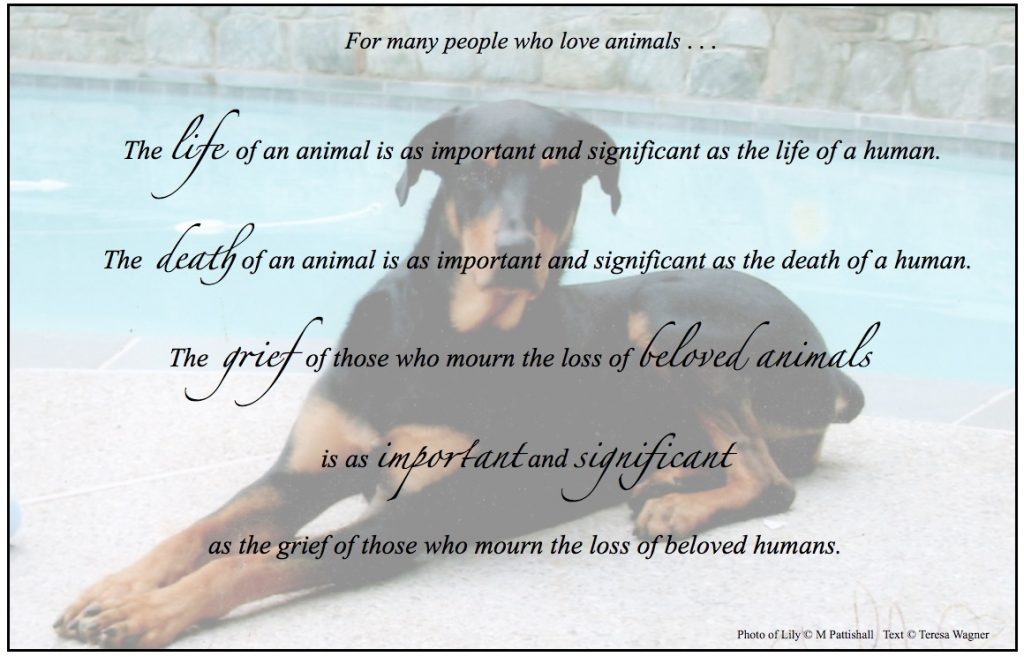
4. We are often faced with the decision to consider euthanasia
The fourth difference is the decision we are often faced with to consider euthanasia. As guardians of our animal loved ones, we have the legal option to end their suffering with euthanasia. The availability of that option–the responsibility to make the decision, either way–often brings enormous emotional stress. Considering the choice to help our animals leave their bodies through euthanasia to end suffering or prevent further suffering is probably the most difficult decision many of us will ever face on behalf of our animals–perhaps even the most difficult decision of our lives. No one wants to make the decision for euthanasia “too soon” for fear of robbing an animal of more life on earth or “too late” for fear of potentially prolonging an animal’s suffering.
The decision making can be excruciating–determining when the physical suffering is too much and/or when diminished quality of life may be intolerable for our animal. When we are considering these issues carefully and mindfully, we need to learn medical facts and terms and how to monitor medical conditions and look for signs of deterioration and diminished functioning we wish weren’t there. It requires left brain, mental attention–sometimes with continually changing diagnoses, medicines and treatments–along with communication with veterinarians and other practitioners about our animal’s condition. And, of course, when our animals are in the end stages of life our hearts are likely breaking. Moving back and forth
between the cognitive requirements to manage health care and the emotional process we are traveling at these times can be daunting. When we may have more strengths in one or the other–taking action, managing the facts and medical care; or continual awareness of how we feel and taking care of our hearts—it’s easy to put our energy into just one of these roles and ignore or not give much attention to the other. The person who is good at medical care and more comfortable with facts may focus primarily on that and close their hearts (even somewhat) to their own pain. While others who are more comfortable with feelings may pay very close attention to their feelings and their animal’s feelings, but not give enough attention to the medical facts and care needed. Even for those with equal comfort and skill in dealing with both facts and feelings can be challenged in dealing with both at such a tender and poignant time.
Making the decision for euthanasia can end physical suffering for our animals, but can also intensify emotional suffering for us. It’s an enormous decision which opens the floodgates to our own grief. Yet the consideration of this option is one we don’t want to ignore simply to avoid our pain when that may mean prolonging our animal’s suffering. On the other hand, the decision can sometimes be made “too early” by those who cannot bear the process of hospice—of watching their animal die—so they may choose euthanasia for their animal to avoid having to be present with prolonged illness and care.
Aside from the timing issue, the euthanasia decision can be made even more difficult by unnecessary guilt created by language. When faced with the sometimes overwhelmingly emotional end-of-life decisions regarding our animal loved one, it can be helpful to consider the true meaning and accurate definition of the term euthanasia. The ancient Greek origin of the word euthanasia means “good death.” The definition of euthanasia is the act of inducing a dignified and painless death for reasons of mercy and compassion. With euthanasia, we lovingly and gently help the spirit leave physical form to end suffering and/or to prevent more suffering.
Euthanasia means helping someone to die a painless death for reasons of mercy and compassion.
The word euthanasia can be a mouthful to even pronounce for those initially unfamiliar with it. But there is no other word or phrase in the English language that means precisely what euthanasia means. A commonly used euphemism for euthanasia, “put to sleep,” is certainly
gentle, but it can be confusing and scary to use with children because they may begin to equate sleeping with death. Perhaps phrases like, “be helped to gently die” or phrasing that includes your own religious or spiritual beliefs about death such as, “the doctor will be helping Fluffy go to heaven so he doesn’t suffer anymore,” would remain gentle yet truthful. The euphemism is not such a good idea for use among adults either because it merely allows us to pretend death is not happening. That’s what euphemisms are–words or phrases that soften or side step the truth when it is difficult to speak about. Putting to sleep means being put in the sleep state, such as with general anesthesia during surgery. Euthanasia means helping someone to die a painless death for reasons of mercy and compassion.
Other phrases sometimes used instead of euthanasia can be too harsh and also grossly inaccurate. Euthanasia does not mean killing, murder or execution. To kill means to deprive of life either by accident or with violence and deliberateness. To murder means to kill with malice, premeditation and motive. To execute means to put to death as a punishment. When we decide with our animal and with professional medical information that it’s time to end the suffering of our animal, we are making the decision for euthanasia: a dignified and painless death for reasons of mercy and compassion. There is a huge difference amongst the words euthanasia, killing, murder and execution. Our recognition of that difference can make a difference in reducing unnecessary guilt for ourselves and in easing our reluctance to make the euthanasia decision, even after we may come to the conclusion that it is the best choice for our animal. Our thoughts impact and even create our feelings. And our thoughts are filled with specific words of our language. In such an already emotionally charged time, it’s very helpful to use accurate terms in our thoughts and in our discussions. Be careful not to say to yourself or others, “I killed my
animal!” Instead, consider saying, “I had my animal euthanized to end her suffering,” or “I made the decision to have my animal euthanized because the medical information was clear that if he died on his own the suffering would have been tremendous.”
Some people grapple not just with the issue of right timing and the meaning of euthanasia, but question whether we even have the moral right to make the decision at all. Facing and contemplating whether euthanasia may be the best decision for our animal at a particular point can be made more difficult by people less concerned with helping us make the best decision for our animal and to be comfortable with our decision, and more concerned about imposing on us their personal beliefs that they see as the only morally correct ones.
Much to my dismay, I once heard a veterinarian tell a crowded room at a seminar that animals who are euthanized experience a terrible death and will have a very unpleasant afterlife because they were not allowed to die on their own. Throughout her talk she spoke with great zealousness about natural death being the only good death and euthanasia being immoral. The majority of the group was quite annoyed at the obvious proselytizing and many left; but sadly, there were a few people who took in what she said as gospel. They became visibly upset and began to talk about their guilt of having realized that they “killed their animals” who will now “never be at peace on the other side,” mimicking the phrases of the speaker. I was outraged. The role of anyone supporting an animal’s guardian through the process of end-of-life decisions is to support them through the process of making the best decision for their animal with all the available information, not treat them like a dependent child whose moral decisions must be made for them. It’s outrageously inappropriate and unethical for any professional to whom grievers turn to for support and information to attempt to force their personal beliefs onto those struggling with this challenging decision.
This story is most definitely not shared to criticize veterinarians in any way—this speaker just happened to be a veterinarian. The highly educated and dedicated women and men in this field are central to our animals’ health care throughout their lives, and important in not only treating our animals at end-of-life stages, but in educating us as well. For the veterinarians throughout the world who help our beloved animals, I am inordinately grateful. This particular workshop leader, however, crossed a line–a line between offering essential education of facts, medical opinions and medical advice, and attempting to impose her personal moral beliefs upon emotionally distraught people.
When we are grieving we are usually far more emotionally vulnerable than usual, allowing us to perhaps be more easily influenced by those in any role of authority. For anyone in such a role to use it to attempt to convert others to their moral belief is completely inappropriate. Such behavior is not client-centered grief support. It is self-centered evangelism.
Healing Thoughts for Reflection:
Our deepest beliefs and values help us make sense of life and what is important to us. We all have a right–and a responsibility–to explore, clarify, choose, and act on whatever beliefs we find to be true for us. If others attempt to pressure us into taking on their beliefs about euthanasia, we have a right to reject these attempts.
The end-of-life decisions we make with and on behalf of our animals are private and sacred. We can gather information from our professional medical and healing team and from our
animals to help us know that we are making decisions with the most complete information possible yet, ultimately, the decision is ours to make. Not only is this time one of the most emotionally challenging in our lives, but it’s also a challenging time to be strong and to stand up to those who may not be supportive. If you find yourself in this situation—with someone gently pressuring or outright bullying you to do what they think is right—do not be afraid to walk away and seek support from someone who is skilled in compassionately focusing on your needs and values and your animal’s needs, not theirs. Make an intention to attract supportive, caring, informed people around you when you face this decision. If the people around you are not supportive, let their judgements and non-support go and know that you can seek and find effective support elsewhere.
Focus on gathering information from sources you trust, including information directly from your beloved animal, and what you know in your heart to be true. Trust your ability to gather both factual medical information from professional medical and healing sources and intuitive information from within yourself and from your beloved animal. Ask for help from the spiritual sources in whom you believe to guide you. With all of this information and help, trust your ability to make the right decisions.
If when looking back at earlier decisions you made regarding euthanasia, you have regrets—wishing perhaps that you would have made a different decision about timing, or a different decision altogether—be gentle with yourself as you explore your decision and how and why you made it. If you feel burdened with guilt, there is help for you to come to peace with the past and to forgive yourself. See the article “Guilt and the Subtle Layers of Letting Go” for specific help with regrets and guilt.
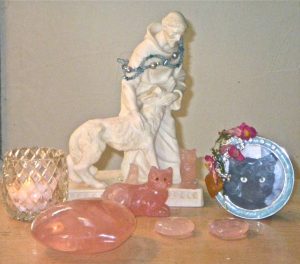
REFERENCES
1 Zunin, Leonard M., M.D. The Art of Condolence. New York: HaperCollins, 1992. Print.
2 Wiender, Shohama, Rabbi D. Min. “Responsa.” Moment Magazine October 1993
3 http://www.huffingtonpost.com/2014/06/03/pope-francis-married-couples-children_n_5434282.html
4 http://www.nytimes.com/2014/12/12/world/europe/dogs-in-heaven-pope-leaves-pearly-gate-open-.html?_r=0
5 Sife, Wallace, Ph.D. The Loss of a Pet. New York: Macmillian Publishing Company, 1993. Print.
6 https://rainn.org/get-information/statistics/sexual-assault-victims
FURTHER RESOURCES
Article:
Cherishing the Legacies Our Animals Bequeathed to Us
Audio Book:
Legacies of Love, A Gentle Guide to Healing From the Loss of Your Animal Loved Ones
On Demand Teleclasses:
Legacies of Love–A Workshop of Healing for Those who Have Lost Their Animal Loved Ones
Understanding and Preparing for Euthanasia
The Animals’ Perspectives and Stories about Death, the Other Side and Coming Back
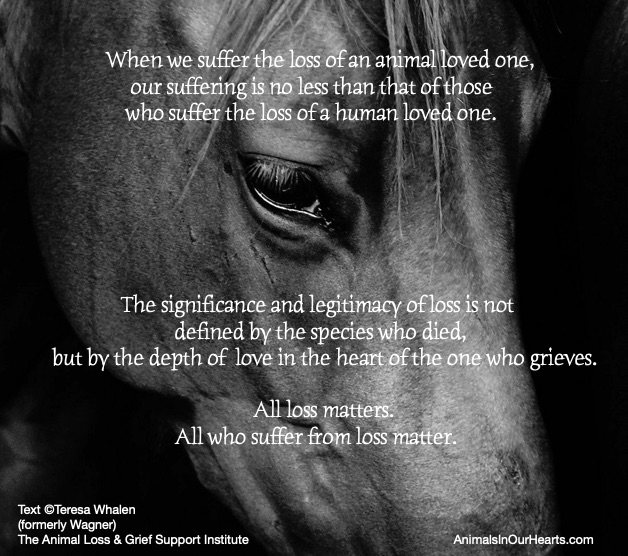
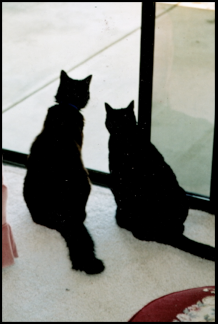
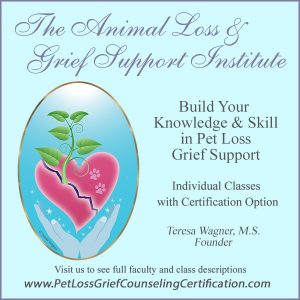
 Thank you for visiting my blog. It is a place for me to share stories from and about animals, love, loss and healing. The articles are primarily written by me, but some are from my colleagues who have graciously allowed me to share their words here.
Thank you for visiting my blog. It is a place for me to share stories from and about animals, love, loss and healing. The articles are primarily written by me, but some are from my colleagues who have graciously allowed me to share their words here. 